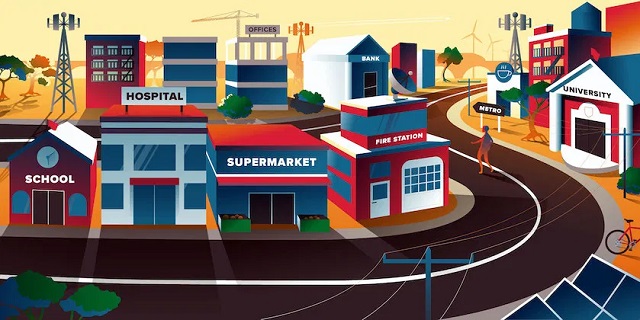
Kampala, Uganda | THE INDEPENDENT | Inequalities around education, technology and climate change could trigger a new great divergence in society if left unchecked, the UN Development Programme (UNDP) has cautioned in its 2019 edition of the Human Development Report.
The report says that just as the gap in basic living standards is narrowing for millions of people, the necessities to thrive have evolved, opening a new generation of inequalities, despite global progress in tackling poverty, hunger and disease.
The new inequalities stem around the climate crisis, and the progress of the technological transformation that includes renewables and energy efficiency, digital finance and digital health solutions. According to UNDP, the two seismic shifts could trigger a new great divergence, the kind not seen since the Industrial Revolution, as they shape the next century.
“Different triggers are bringing people onto the streets; the cost of a train ticket, the price of petrol, demands for political freedoms, the pursuit of fairness and justice. This is the new face of inequality, and as this Human Development Report sets out, inequality is not beyond solutions,” says UNDP Administrator, Achim Steiner.
In countries with very high human development, for example, subscriptions to fixed broadband are growing 15 times faster and the proportion of adults with tertiary education is growing more than six times faster than in countries with low human development.
“What used to be ‘nice-to-haves’, like going to university or access to broadband, are increasingly important for success, but left only with the basics, people find the rungs knocked out of their ladder to the future,” argues UNDP’s Pedro Conceição, Director of the HDR Office, which pioneers a more holistic way to measure countries’ progress beyond economic growth alone.
The report analyzes inequality in three steps: beyond income, beyond averages, and beyond today. But the problem of inequality is not beyond solutions, it says, proposing a battery of policy options to tackle it. It also views richness as going beyond the idea that economic growth will automatically lead to development and wellbeing.
UNDP research shows that in 2018, 20 per cent of human development progress was lost due to the unequal distribution of education, health and living standards. The report recommends revamped policies in the areas of education, productivity and public spending.
As inequality begins even before birth and can accumulate through adulthood, investing in young children’s learning, health and nutrition are key. These investments must continue throughout life, as they have an impact on earnings and productivity in the labour market.
UNDP observed that countries with a more productive workforce generally have a lower concentration of wealth at the top, which is enabled by policies that support stronger unions, the right to a minimum wage, social protection and which bring more women into the workplace.
The report further highlights the role of taxation, which cannot be looked at on its own. Rather, fair taxation should lie behind policies that include greater public spending on health, education and greener energy alternatives.
The report calls for opportunities to be “seized quickly and shared broadly”.
******
URN
 The Independent Uganda: You get the Truth we Pay the Price
The Independent Uganda: You get the Truth we Pay the Price


